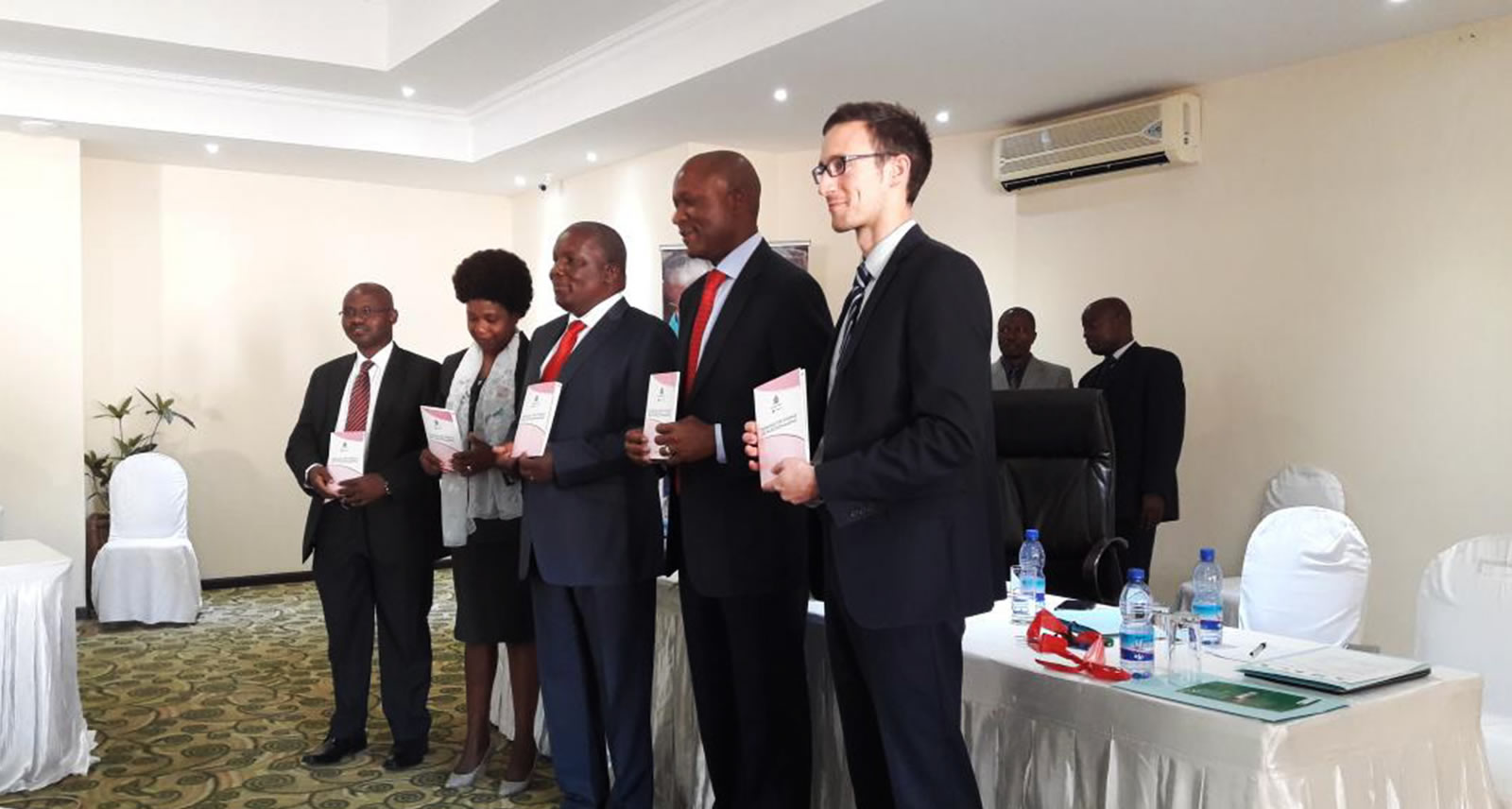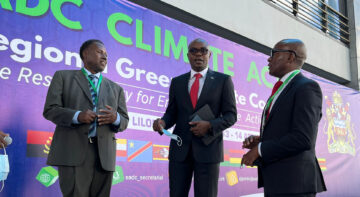News

The Speaker of the Parliament of Malawi, Rt. Hon. Mr Richard Msowoya, on 1st November 2016, officiated at the launch of Guidelines for Evidence Use in Policymaking that were jointly produced with AFIDEP as part of ongoing programme aimed at building Parliament’s capacity to use evidence in the formulation of laws and policies. The high-level conference was held at Sunbird Capital Hotel and was attended by among others, The Clerk of Parliament, Mrs Fiona Kalemba, Deputy Clerks, Mr. Henry Njolomole and Mr Leonard Mapemba. AFIDEP’s Executive Director, Dr. Eliya Zulu, led the AFIDEP team that co-hosted the event.
In his remarks, Hon. Msowoya noted that among the three arms of government, Parliament faces the most severe shortage of research expertise. According to him therefore, the partnership with AFIDEP under which the Guidelines were produced and a total of 12 members of technical parliamentary staff trained in Evidence-Informed Policymaking (EIPM) could not have come at a better time.
He noted: “I cannot over emphasise the need for Members of Parliament to have timely, up-to-date, accurate and well researched information to enable them to be effective in decision-making.” He recalled how some three years ago, Parliament signed a memorandum of understanding with AFIDEP to carry out a needs assessment to establish institutional and individual capacity gaps of Parliament to access and use evidence and propose interventions for addressing the gaps. Following that needs assessment, AFIDEP committed to offer technical assistance to build capacities of both Parliament and its staff in the use of research evidence in policy making, which was found to be weak or lacking.
Giving some remarks during the event, AFIDEP’s Executive Director, Dr. Eliya Zulu, presented the background of AFIDEP and that of the Strengthening Capacity for Evidence Use in Health Policy (SECURE Health) programme. He noted that The primary objective of the programme is to stimulate demand and use of research evidence in decision-making in the Ministries of Health and Parliaments in Kenya and Malawi. It aims to achieve two broad outcomes namely: Strengthened institutional leadership, systems, and infrastructure needed to inculcate an evidence use culture; and Enhanced individual skills and capacity of policymakers in the health ministry and the legislature in accessing, appraising, synthesising, and using evidence.
He went on to explain the utility of the EIPM guidelines by noting: “The Guidelines for Use of Evidence in Policymaking that we are launching today not only provide an institutional framework for promoting an increased focus on evidence use, they also provide knowledge, skills and tips in understanding the complexity of decision-making, knowing where to find evidence, knowing how to assess the quality of evidence, knowing how to synthesise a wide range of evidence to provide comprehensive, credible and clear decisions.”
According to Dr. Zulu, it is critical that policymaking and legislative institutions develop a culture of evidence use in order to help countries to achieve their own long term visions and those of the global community. “The concept of evidence informed decision-making is extremely important as we transition from the MDGs to contextualise the SDG framework. The SDG framework’s health goal is much more robust than what we had under the MDG framework, and it provides a great opportunity to address health challenges that Malawi and other African countries are facing more holistically,” he observed.
A highlight of the launch event was the graduation of 12 trainees in EIPM that was delivered though a curriculum developed by the SECURE Health programme. They were ceremoniously issued with certificates by the Speaker.
As part of their training, two of the trainees went to the UK and were attached to the Parliamentary Office of Science and Technology (POST)for a month’s internship programme with the aim of further strengthening their knowledge and skills on evidence informed decision-making. Two trainees completed policy briefs on urgent issues that their sections in the Parliament are grappling with. They made presentations based on these briefs during the event.
The event was well attended by among others: Parliament staff, researchers, scholars, civil society organisations, the media, funding partners and members of the public.
Other partners of the SECURE Health Programme are FHI 360, the East, Central and Southern African-Health Community (ECSA-HC), and the Consortium for National Health Research in Kenya. In Malawi, AFIDEP and the College of Medicine worked closely under the leadership of the Parliament especially that of Research Section in implementing the programme. The SECURE Health programme also worked closely with the Malawi Ministry of Health. It is funded under the Building Capacity to Use Research Evidence (BCURE) programme of DFID.
Related Posts





